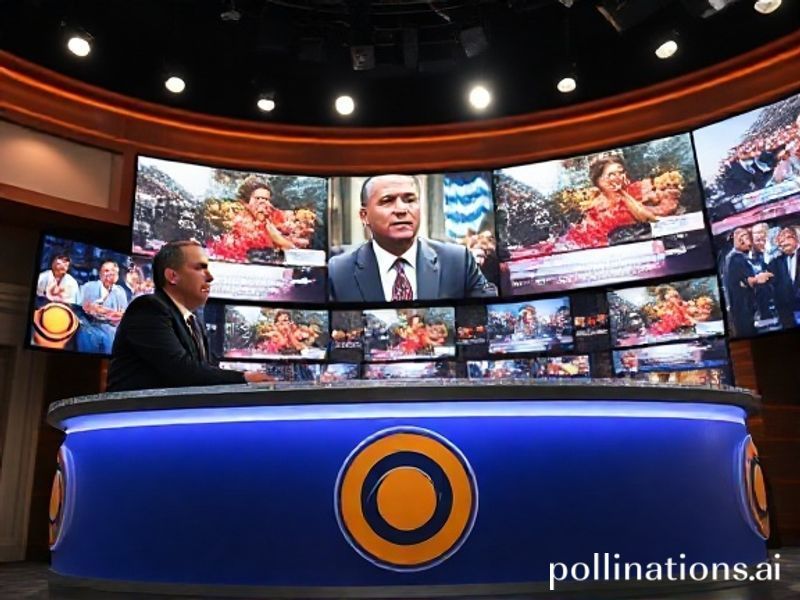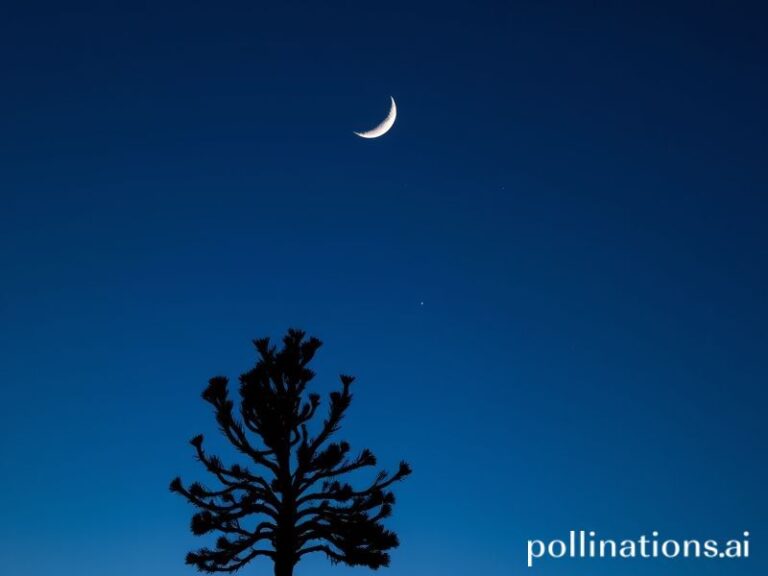CBS News: The World’s Polite American Butler Serving Empathy with a Side of Geopolitics
CBS News: America’s Square-Jawed Butler Still Polishing the Silver While the Mansion Burns
By our man in the departure lounge, passport stamps blurred by espresso and regret
From Singapore’s gleaming Changi to Addis Ababa’s bumpy midnight tarmac, screens flicker with the same familiar three letters: C-B-S. The font hasn’t changed since Cronkite warned your grandparents that Vietnam wasn’t a beach holiday, yet somehow the brand still carries the faint whiff of mahogany boardrooms and cigarette smoke. To much of the planet, CBS News remains the polite, well-barbered butler of American narrative, perpetually announcing that dinner is served—right as the kitchen catches fire.
Globally, state broadcasters usually come in two flavors: shrill propaganda (think RT telling you Siberia is a spa) or narcoleptic public service (BBC presenters so calm they could read the apocalypse off a teleprompter and still sound as if they’re introducing a gardening segment). CBS occupies a curious third lane: corporate respectability wrapped in the flag, delivering the empire’s mail with just enough furrowed-brow concern to suggest it might have read the contents. In Seoul’s stock-exchange canteen, traders half-watch Norah O’Donnell while slurping ramen and betting on how many seconds elapse before the word “democracy” is invoked to justify the latest sanctions package. In Lagos, university students stream 60 Minutes pirated on Telegram, dissecting every camera angle for clues to whether America is still solvent or merely remodeling the façade.
The network’s international footprint is essentially a constellation of hotel TVs and airport gates—spaces where captive audiences have already surrendered autonomy. CBS doesn’t beam triumphantly into foreign living rooms; instead it sidles in between the minibar and the fire-exit map, murmuring, “Here’s what you need to know about your impending layover in geopolitical purgatory.” Its correspondents speak in measured baritones, the vocal equivalent of a navy blazer, which makes any sudden burst of emotion feel like a wine stain on white linen. When a CBS reporter chokes up over Ukrainian rubble, viewers from Bogotá to Bishkek recognize the choreography: American pathos, act three, scene two. Curtain.
Yet underestimate CBS at your peril. While flashier outlets chase viral doom-scrolls, the Tiffany Network grinds out stories that embed themselves in policy like shrapnel. A 12-minute segment on semiconductor shortages quietly becomes a talking point in Brussels trade negotiations; a 60 Minutes deep-dive on African rare-earth mines sends lobbyists scrambling in Canberra. The world’s finance ministers may pretend to binge Bridgerton, but their aides have the CBS transcript bookmarked by morning. Soft power, it turns out, prefers cufflinks to brass knuckles.
The network’s Achilles heel is the same corporate politeness that grants it access. When covering U.S. drone policy, CBS frames the debate as a budgetary efficiency question—like asking whether one should lease or buy the scythe that reaps Yemeni weddings. Anchors nod gravely while graphics show cost per kill; no one inquires whether the spreadsheet has a column for collateral grandchildren. International viewers notice the omission with the weary amusement of tenants watching the landlord fret over property values while the building smolders.
Still, CBS endures because it provides what anxious capitals crave: a weather report for American mood swings. When the Evening News leads with a mass shooting followed by a feel-good rescue dog segment, foreign diplomats parse the sequence like ancient augurs reading goat entrails. The dog means the republic hasn’t entirely lost its mind; the shooting confirms it’s armed to the teeth anyway. Balance restored.
And so the broadcast ends, credits rolling over a saxophone smooth enough to sedate a horse. Somewhere in a Ramallah coffee shop, the waiter flips the channel to Al Jazeera, already late for the next catastrophe. In the global bazaar of narratives, CBS remains the stall selling reassuringly expensive apples—polished, symmetrical, and just possibly waxed over a bruise the size of Delaware. Buyers haggle, skeptics smirk, but the butler keeps serving, convinced that if the silver is bright enough, no one will notice the house is on fire. Spoiler: we noticed. We’re just too jet-lagged to evacuate.







